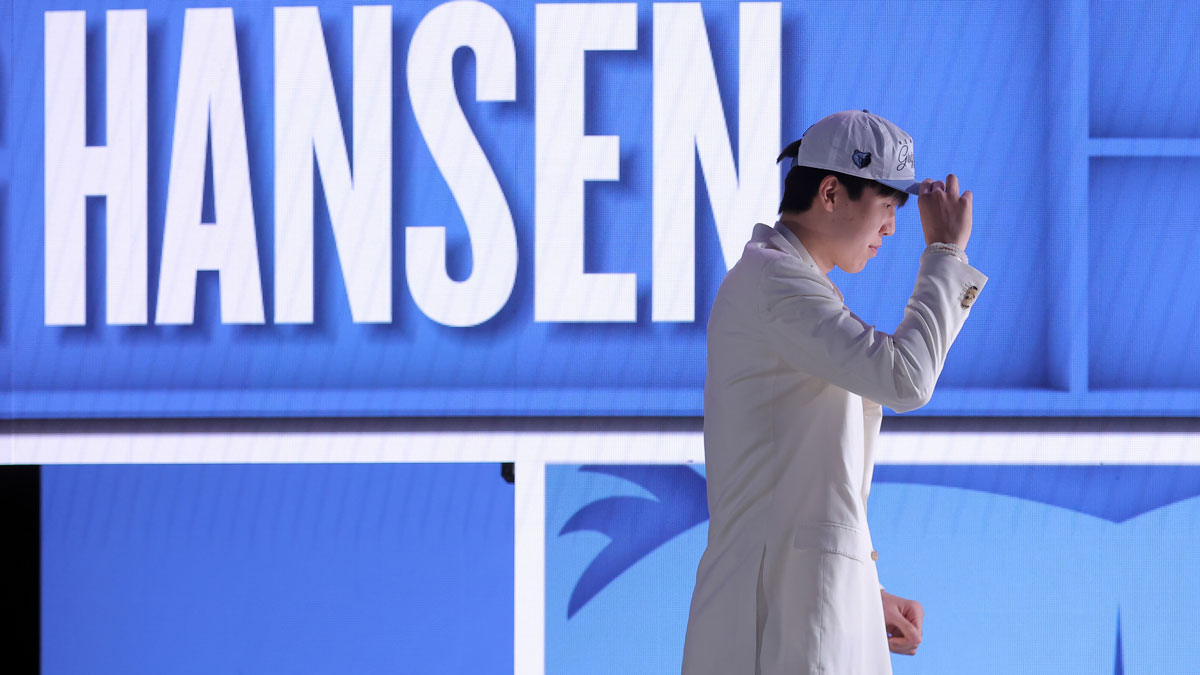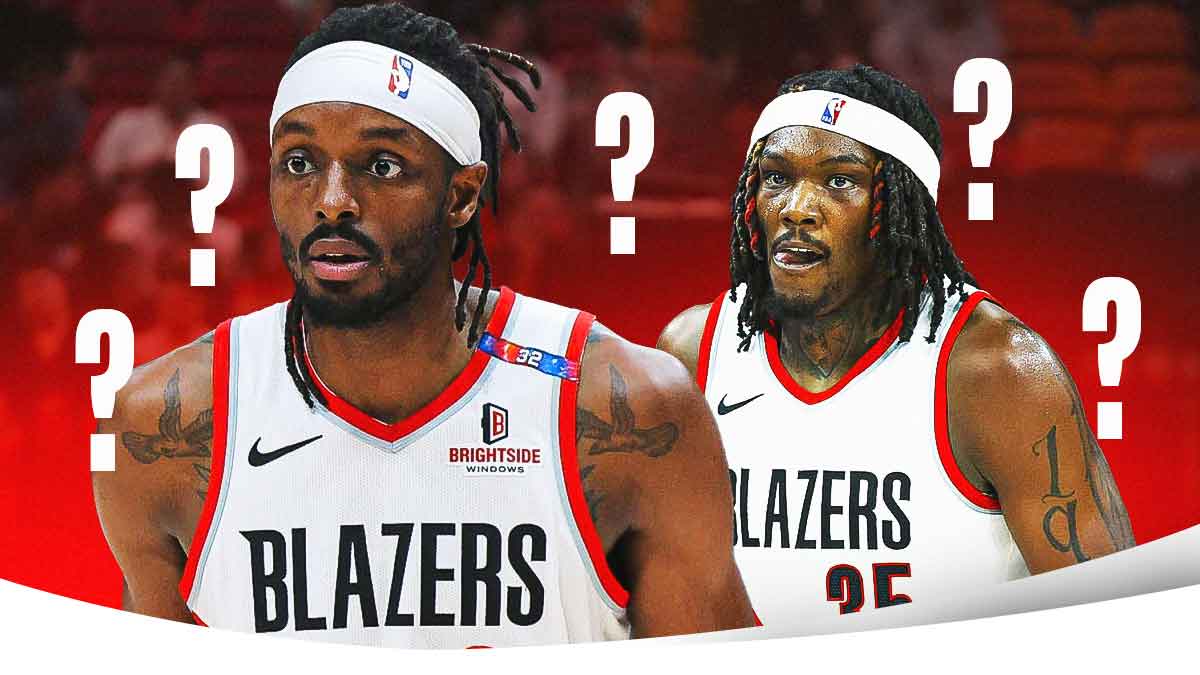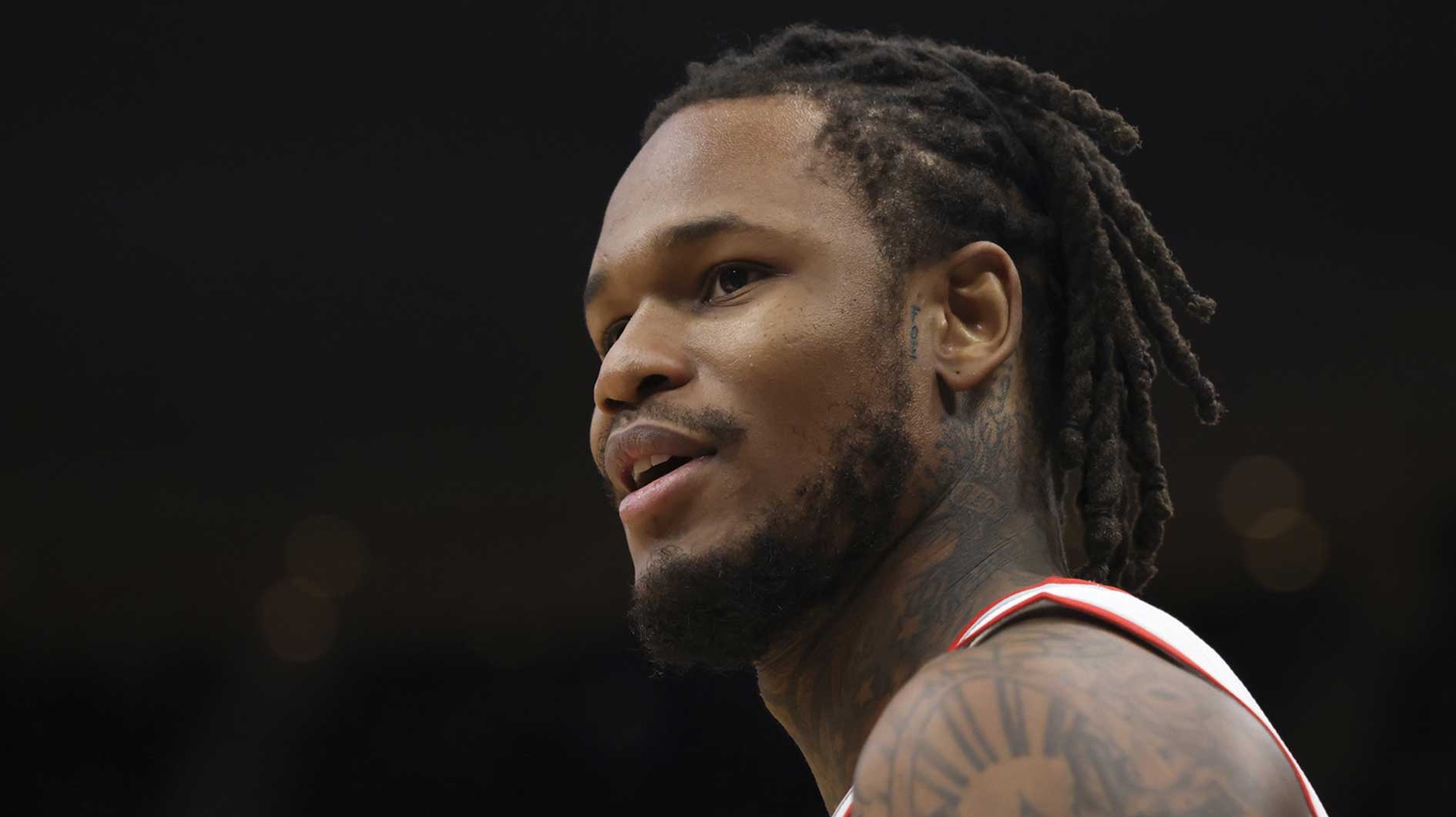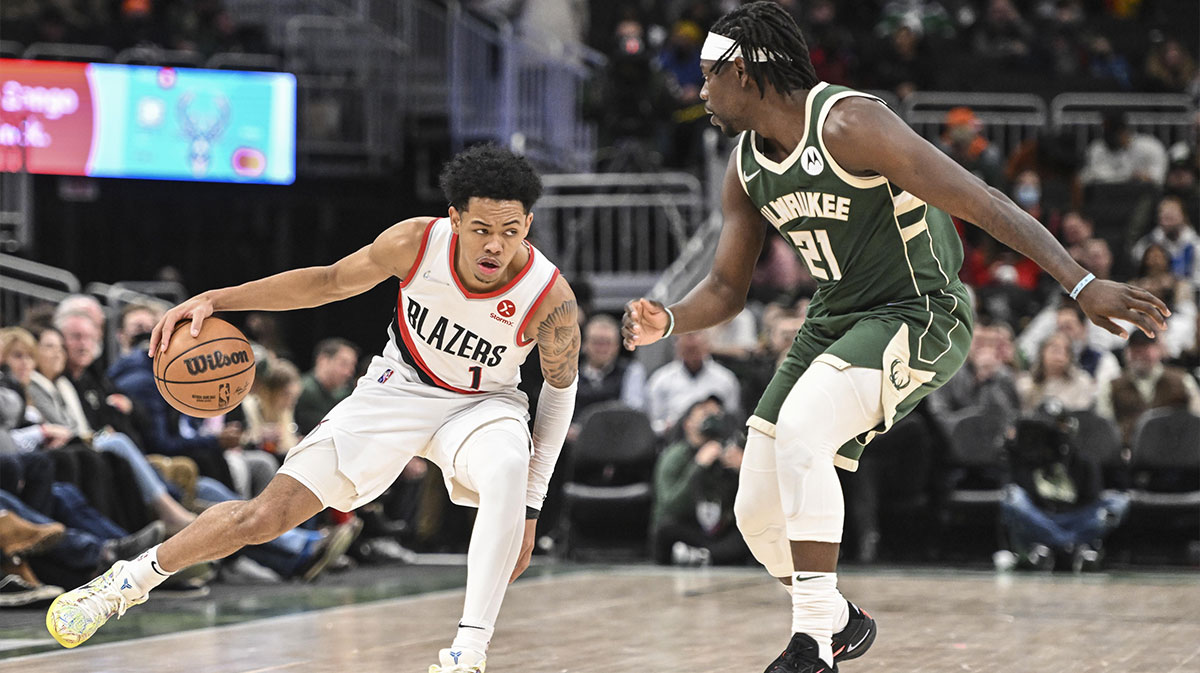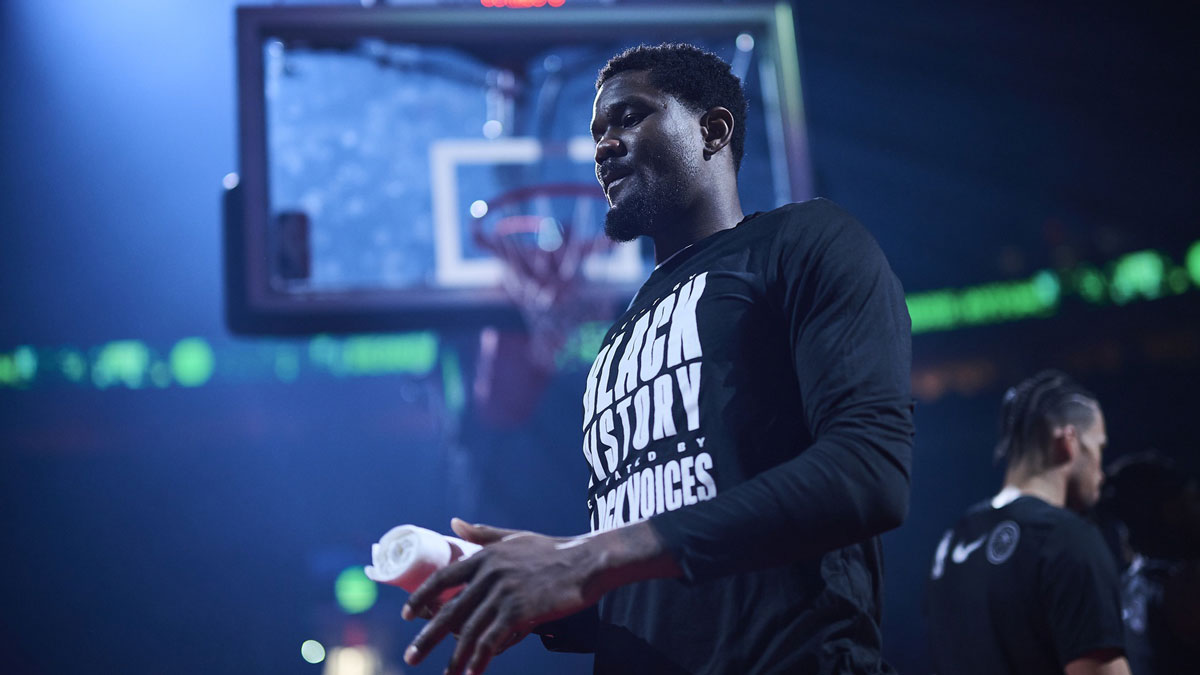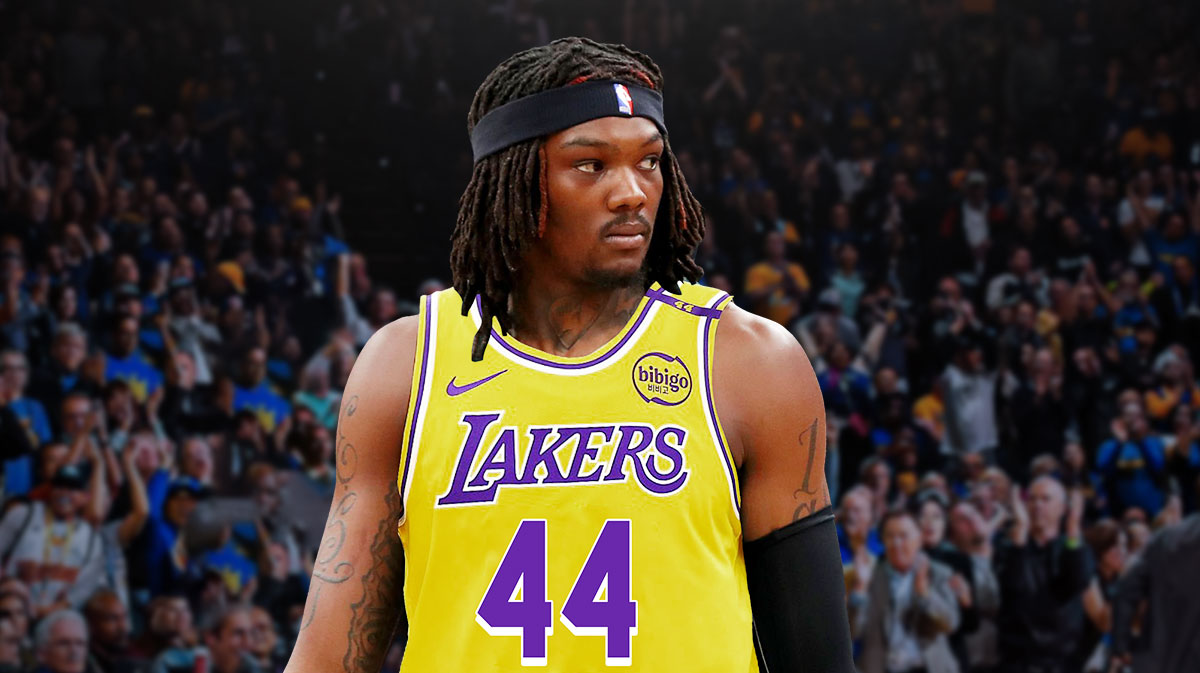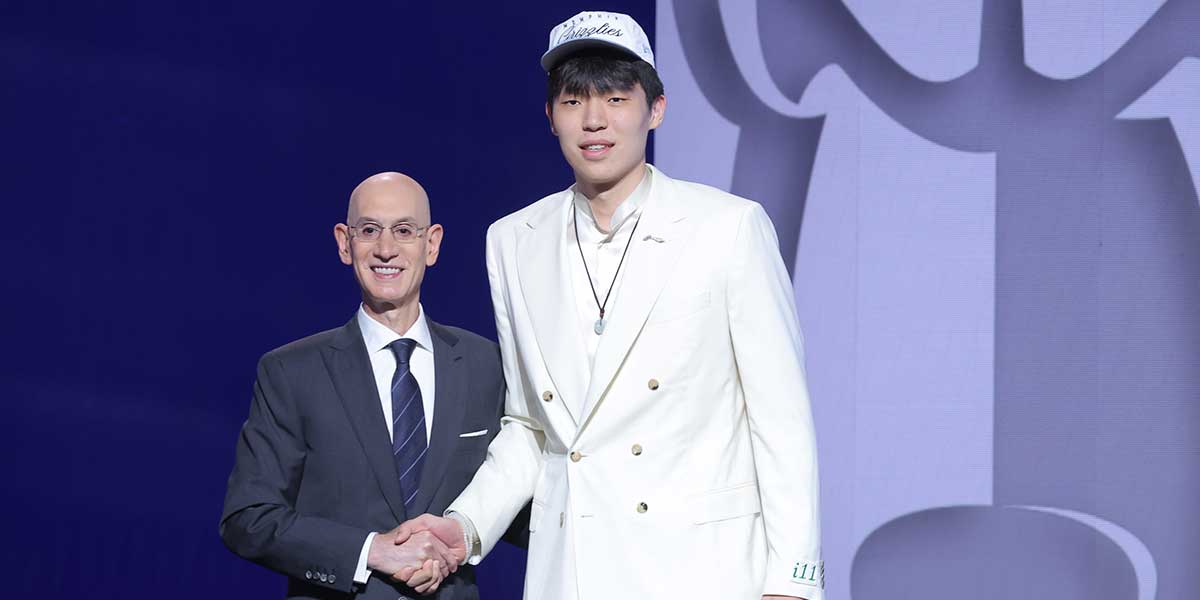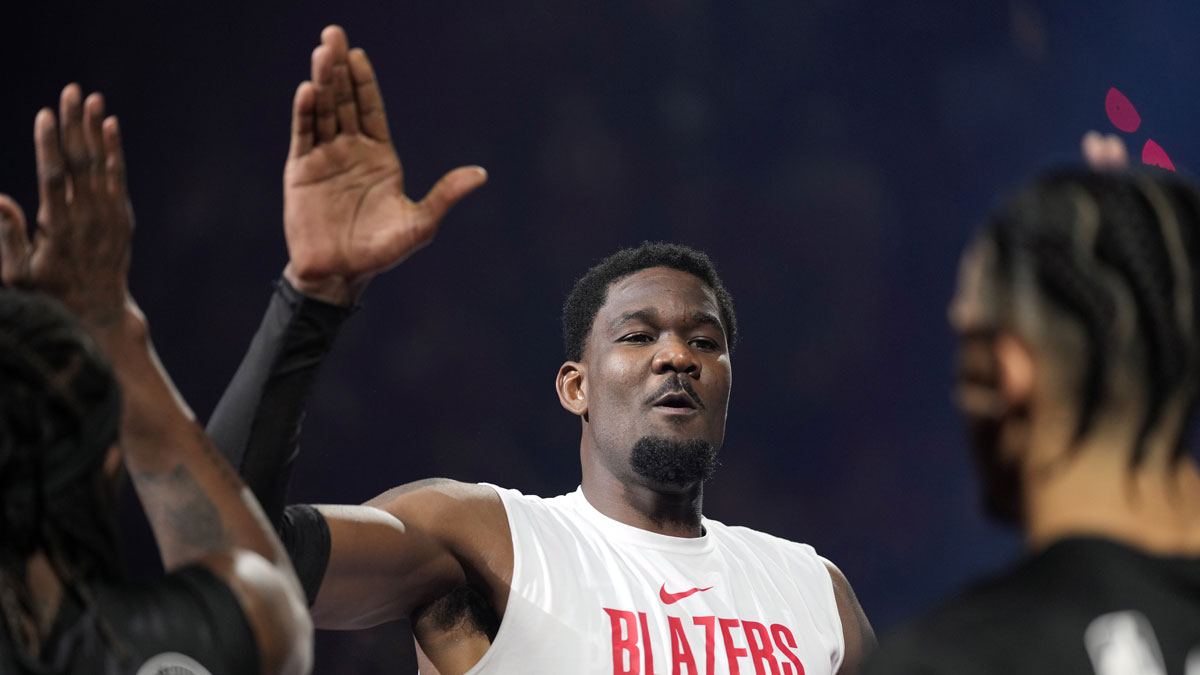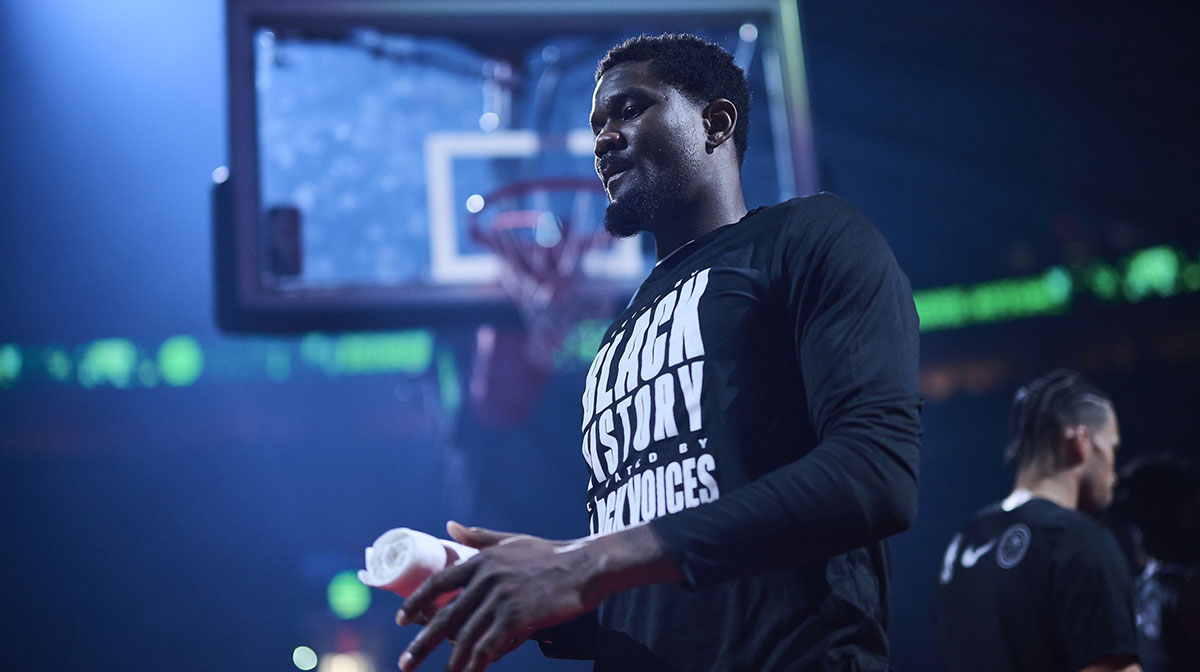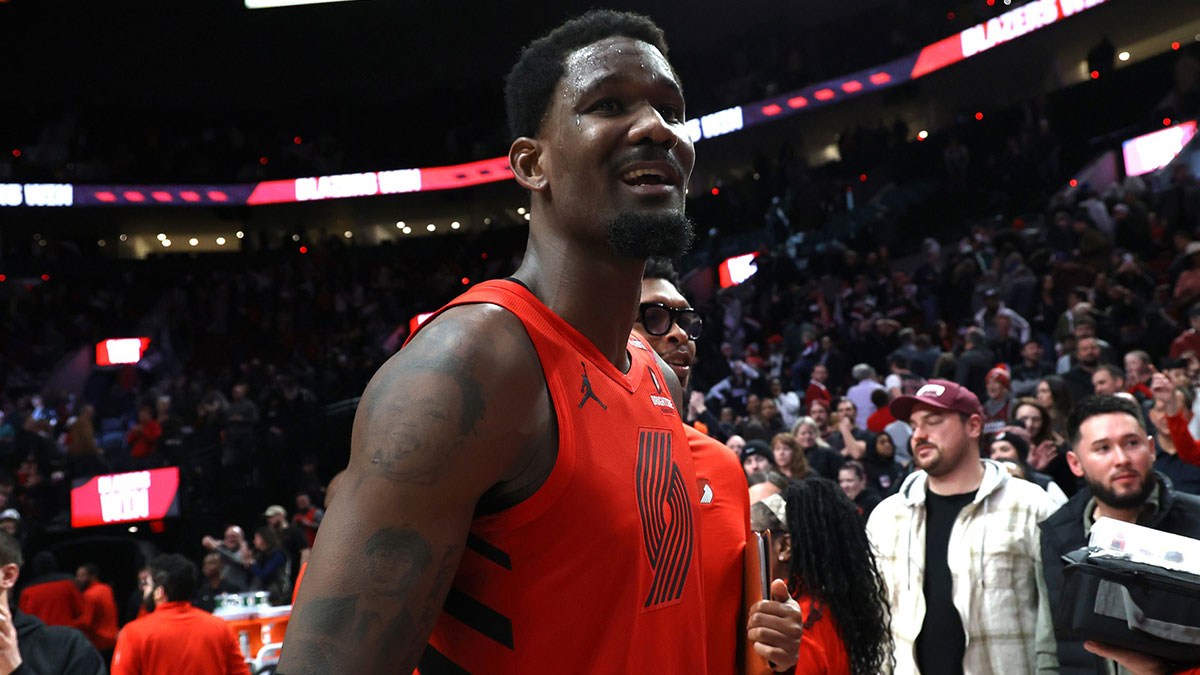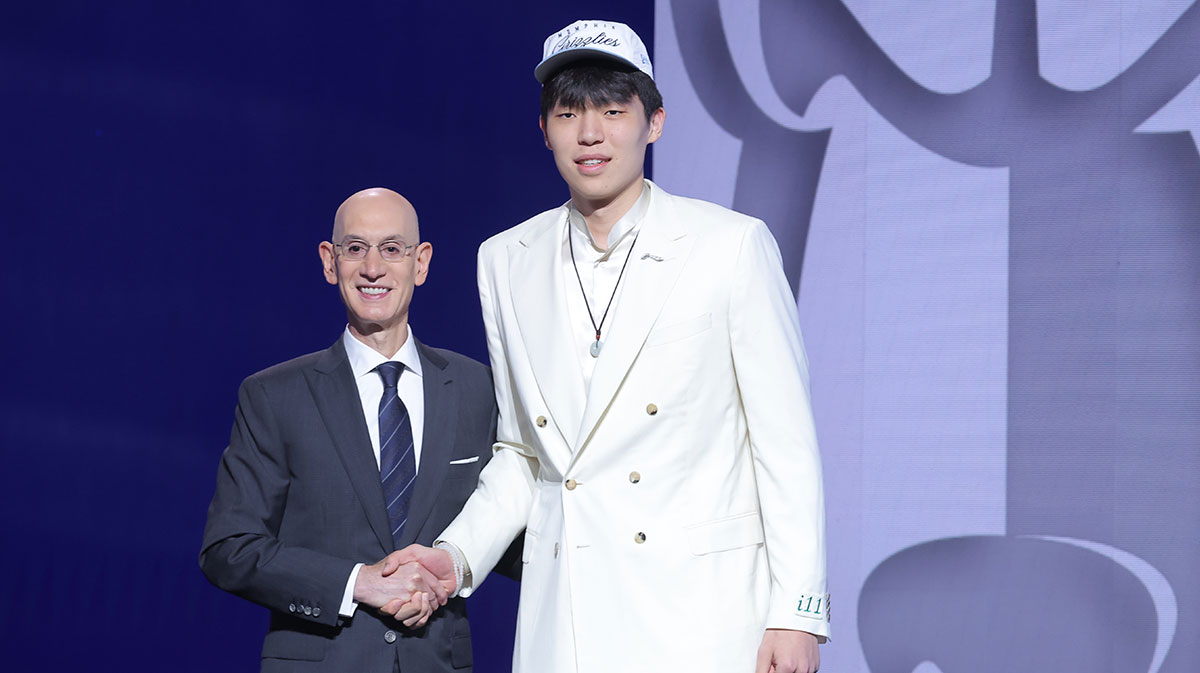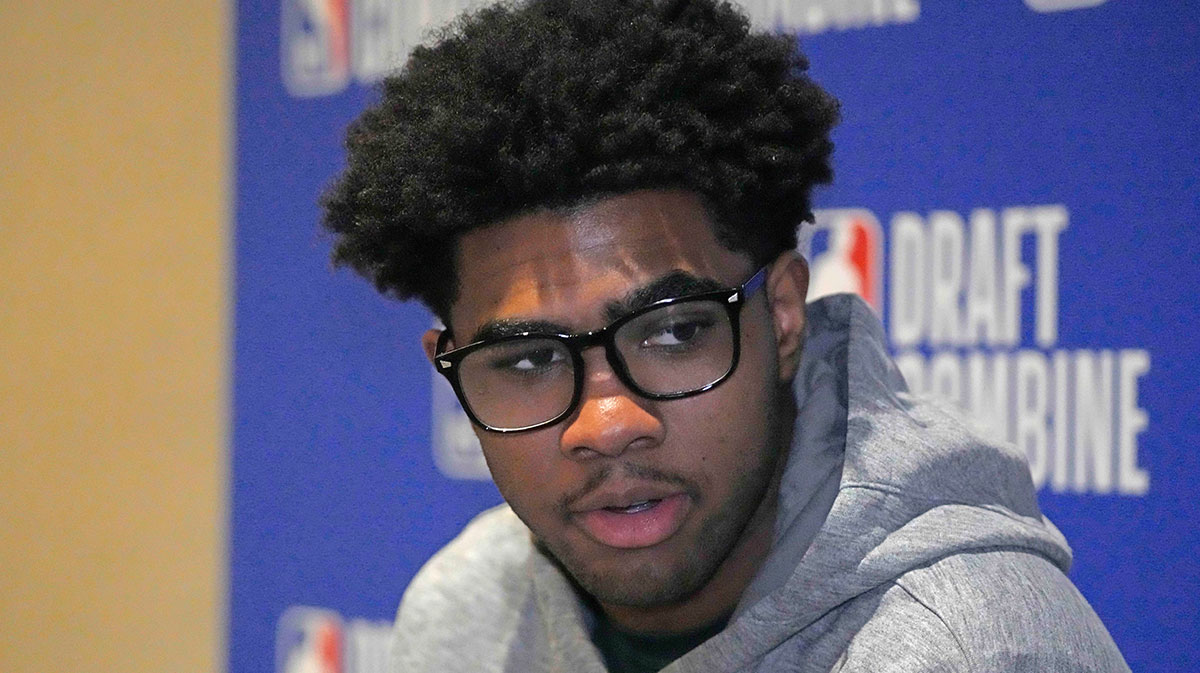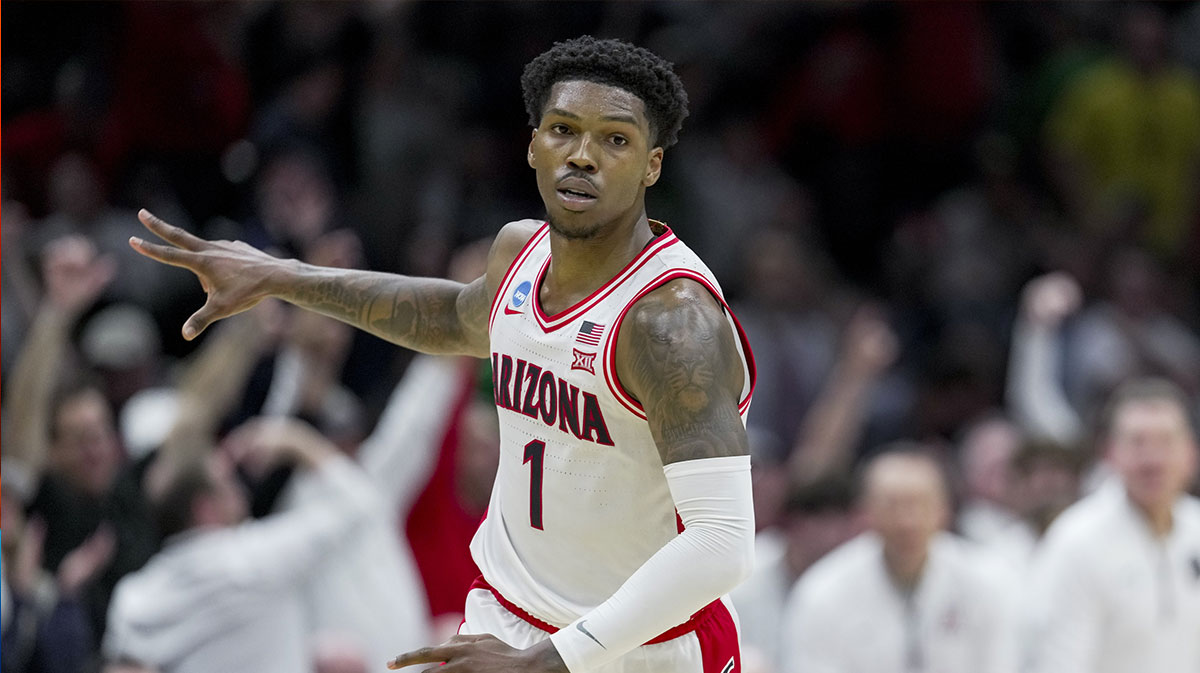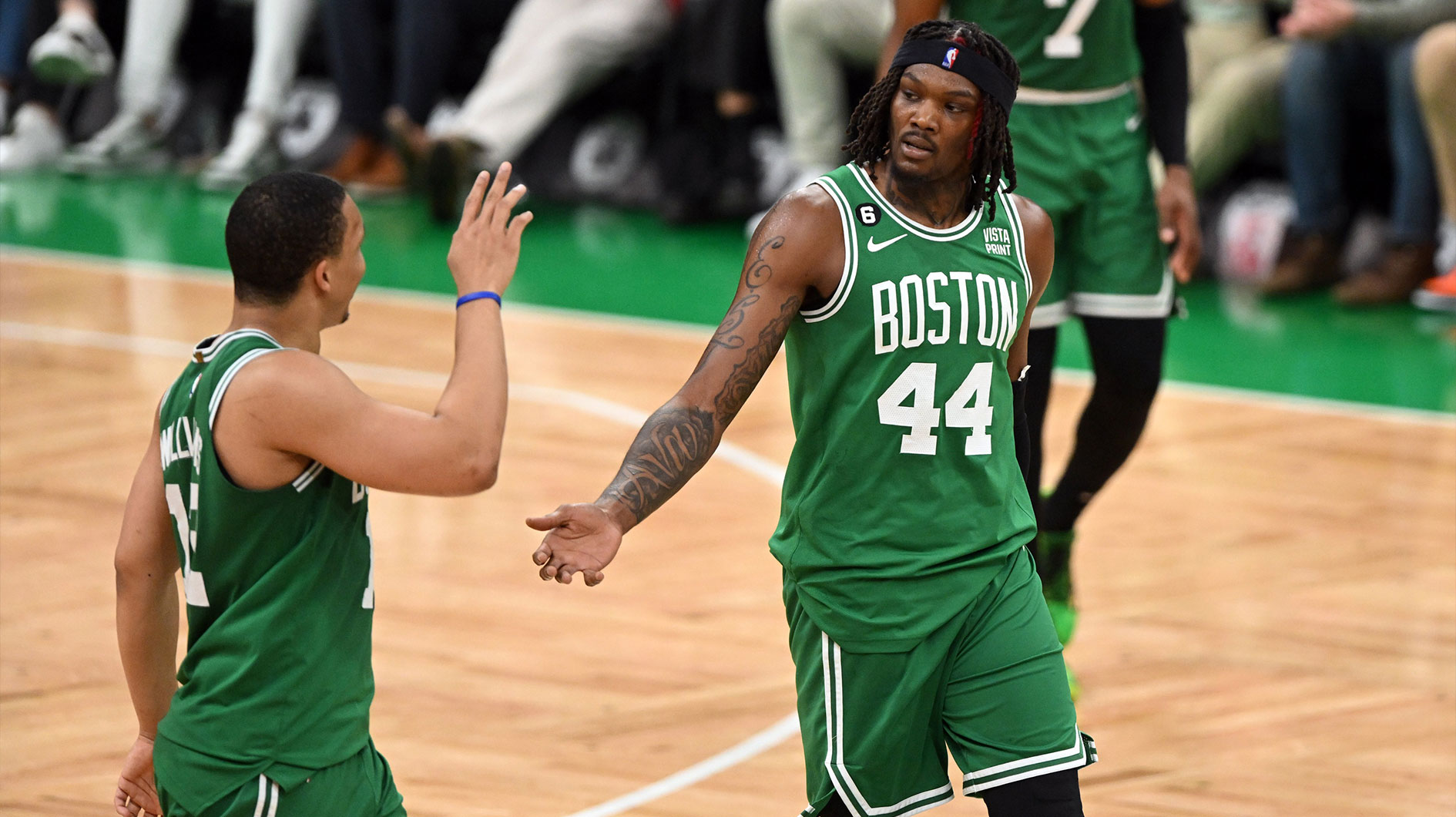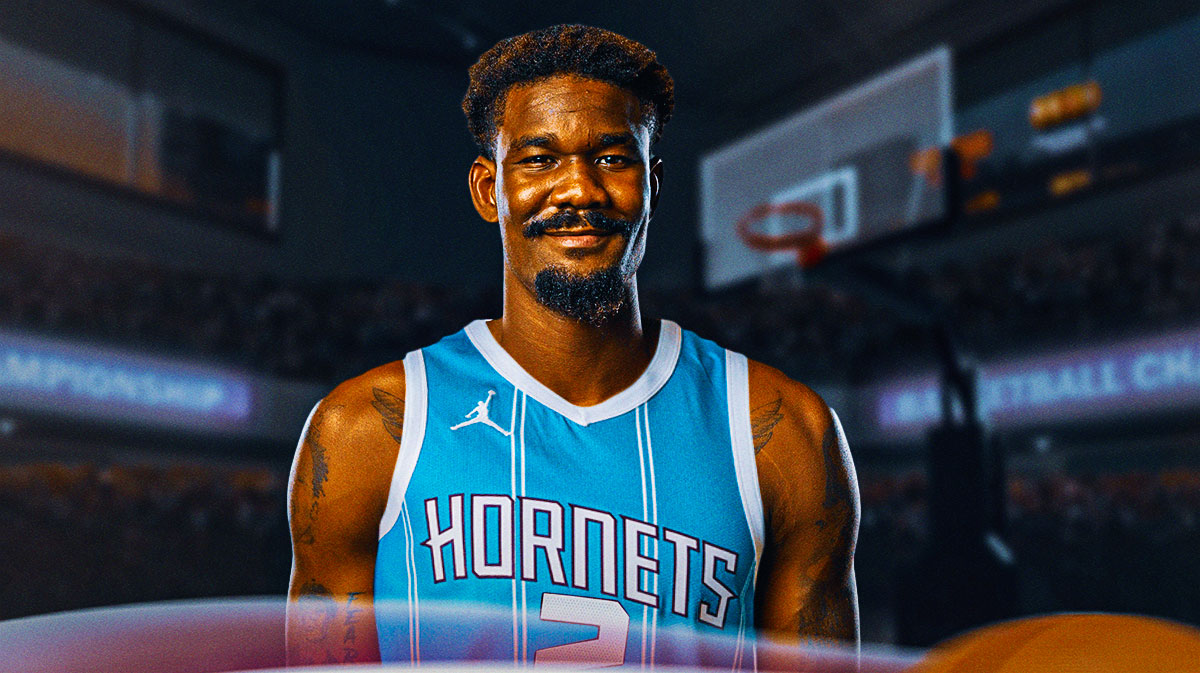Damian Lillard had a lot to be happy about late Friday night.
Not only had the Portland Trail Blazers just ended a seven-game losing streak, but they beat the Charlotte Hornets 125-116 in a convincing wire-to-wire victory with C.J. McCollum still watching from the sidelines. The Blazers' dominant offensive performance absent one of basketball's best shot-makers certainly suggests major progress on that side of the ball, and so did the eye test. Chauncey Billups even offered up praise after the game for Portland's defense against LaMelo Ball and the Hornets' high-octane offense.
What should've been Lillard's cherry on top of a sorely-needed Blazers win? His own singular influence behind it. Lillard played by far his best game of the season on Friday, reaching a higher plane of all-court playmaking brilliance reserved for basketball's true superstars—one he hadn't even scraped over the first two months of 2021-22. He finished with 43 points and eight assists on 19 field goal attempts, draining six threes and living at the free-throw line en route to an eye-popping 85.5 true shooting percentage.
The key to Damian Lillard's 43-point explosion #Blazershttps://t.co/0h59zerRqv
— Blazers Nation (@BlazersNationCP) December 18, 2021
Lillard insisted after Sunday's overtime loss to the Minnesota Timberwolves that his body is feeling better than it has in a long time, and has repeated time and again amid early-season struggles that he was simply waiting for his jumper to come around. His physical fitness and the whims of shot-making finally aligned versus Charlotte, resulting in the type of all-time performance that's earned Lillard a spot on the league's 75th Anniversary Team but had completely eluded since tipoff of the regular season.
Instead of ringing in the Blazers' collective success with a buoyant postgame press conference, though, Lillard was uncharacteristically reserved while speaking with media in the bowels of Moda Center.
Pressed to elaborate on his perceived mood by Blazers in-house reporter Casey Holdahl, Lillard made clear he felt the joyous thrills of leading his team to victory. They were just impossible to muster right then given the nagging task of answering questions from a media contingent Lillard believes hasn't treated him fairly.
“I’m happy we won the game. That’s what we come here to do. Like I felt happy throughout the game, after the game. In the locker room, I felt happy,” he said. “But when I come here and I gotta answer questions, and I have done so much in my career, specifically in Portland. I’ve given everything. I’ve never made an excuse. I’ve never disrespected any of y’all. I’ve never not given you guys time. Just when our team is going through it, I’m in a little bit of a struggle, I see certain people not giving me that same respect. So that’s why I’m a little irritated in here, but with my team I’m happy with what we did. S…that’s that. And I still come in here and give that same time, but I just don’t appreciate it, man. It’ll be handled that way going forward. So…that’s that.”
Lillard waited after giving that typically verbose and thoughtful response, the kind that won him the Pro Basketball Writers Association's Magic Johnson Award—annually given to “the player who best combines excellence on the basketball court with cooperation and dignity in dealing with the media and the public”—in 2020 and 2017. When team PR personnel then surveyed the room for any further questions, Lillard ended the presser on his terms.
“Nah,” he said, standing up. “That's the last question.”
Lillard's specific gripes with local media are unknown. The drumbeat of coverage since early summer that's called for him to bail on the Blazers isn't coming from Portland. Even more recent local calls for he and the team to part ways are about maximizing both sides' realistic championship hopes over the foreseeable future. Pretty much everyone in Rip City is pro-Dame.
But his pointed critique hardly lacks merit altogether, even without knowing the genesis behind it.
Lillard, mic in hand, stood at halfcourt of Moda Center moments before a season-opening loss to the Sacramento Kings, telling an adoring crowd that while it wouldn't always be perfect or pretty, the Blazers would try their damnedest to compete in 2021-22 while implementing overhauled schemes on both sides of the ball under a rookie head coach. He was right. Portland hasn't been pretty at all and nowhere close to perfect while starting the season 12-18.
Chauncey Billups on his message to Blazers today after re-watching 30-point loss to Clippers:
"Everybody wants to win…but is everybody committed to do what it takes to *actually* win?" #RipCity pic.twitter.com/r8RtMjUrep
— Jack Winter (@ArmstrongWinter) October 26, 2021
Where Lillard's off-hand prediction erred—and what's sparked most criticism from local reporters—over the season's first 30 games is that he and his teammates, even if they struggle, would do so giving maximum effort. Billups has hardly been shy to publicly lambast his veteran squad for engagement and intensity that's too often proved waning. Lillard himself has alluded to that glaring issue on numerous occasions, albeit in less stark terms.
What's sometimes been missing from published judgments of the Blazers' lagging fight, though, is the environment in which it's come.
The cloud of Neil Olshey's alleged workplace misconduct hung over this team for a month until it was finally confirmed with his firing. Billups, Lillard and the rest of the team subtly downplayed expectations at Media Day, en masse referencing the time it would take for the revamped Blazers to hit their stride in the first season of a completely new regime. Lillard shed some light on that learning process last month, noting that Portland's inevitable growing pains were tougher to endure with key rotation players going in and out of the lineup. Joe Cronin all but guaranteeing trades to come during his first public appearance as interim GM on December 9th doesn't make playing through all of it any easier.
Those factors play into the Blazers' performance over a third into the regular season. The biggest one is even more obvious: Lillard's career-worst slump.
The newfound depths of his inefficiency and Lillard's sustained inability to climb from them were covered to death in Portland, and rightfully so. The Blazers rely more on him playing at a borderline MVP level for success than perhaps any other team in basketball does its alpha dog. The numbers back that up this season despite Lillard's shooting woes and nagging abdomen injury.
Portland's offensive rating is nearly nine points better with him on the floor, per Cleaning the Glass, an elite discrepancy. No regular rotation player in basketball has a bigger net effect on his team's frequency of shots at the rim than Lillard. His +16.4 net offensive rating in the halfcourt ranks first in the NBA. The Blazers are a bit stingier defensively when he's in the game, too, according to NBA.com/stats.
Even clanking a horde of jumpers he felt were going in and managing pain that just caused him to sit for two weeks, Lillard's been one of the most impactful players in the NBA this season. His condemnation of the media makes more sense viewed through that lens. How often have the circumstances of Lillard's abdomen injury been included in stories about his down year, let alone that shining on-off data?
Context is always crucial, and that's especially the case for Lillard and the Blazers during some of the most chaotic, uncertain times in franchise history. Maybe all Lillard wants is that nuance to be more regularly reflected by reporters. But a player whose ultimate goal has always been to win a championship in Portland no doubt knows it's tough to see the trees in a forest of losing and limited means for his team to get better.

